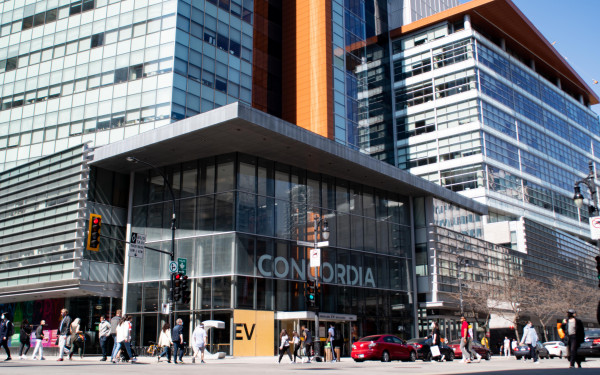Who Actually Runs Concordia?
An Introduction to the Key Players Involved in University Politics
As Concordia opens its doors to the thousands of new and returning students, the university's organizational structure remains a mystery to many.
Who actually has the power? Who decides the rules of Concordia? As the risk of boring you with an onslaught of acronyms, here is an introductory guide to the governance of Concordia.
The President
Concordia’s head honcho, President Graham Carr has been in office since 2019. The president’s role is to provide leadership and map out the university’s big academic and business affairs. He is the head of Concordia’s Board of Governors and the Senate, charged with carrying to term all decisions made in session.
The Provost
Anne Whitelaw has been the university’s provost since 2019. The provost is Concordia’s chief academic officer as well as chief operating officer. She oversees the academic and budgetary affairs of Concordia. Whitelaw is also in charge of Concordia’s initiatives on equity, diversity and inclusion. Her primary role is to ensure academic standards and to report to the president.
The Board of Governors
The Board is where all important decisions about Concordia are made—this is where most of the power lies. Board is composed of 25 voting members, mainly administration officials. Their task is to establish all legal and administrative frameworks for Concordia. Meetings are held between the middle and the end of every month. Seven meetings are planned for the upcoming year, the first being on Sept. 29. Two voting student representatives are present at the Board.
The Senate
The Senate is Concordia’s second-highest decision-making body. Although less powerful than the Board, it is much larger: the Senate contains 54 voting members and 11 non-voting members. Members approve the university’s budget, recommend nominations for honorary degrees, and deal with other important duties. Sixteen student representatives are present at the Senate.
Student Power
While the bulk of decisions on campus is made by administration officials, Concordia would be nothing without its vibrant, politically active student population. Ranging in size and influence, these student groups define campus life. Student representatives spend hours in academic committees and organize mass events like student strikes and demonstrations. They spearhead the Concordia community.
Concordia Student Union and Graduate Student Association
The mother of all student groups, the CSU’s main goal is to represent and protect students’ rights. The CSU serves as the primary union for Concordia’s undergraduate student population. Graduate students are represented by the Graduate Student Association. The CSU and GSA hold two voting positions on the Board and the Senate. Undergraduate students pay $4.95 per credit to the union.
Arts and Science Federation of Associations
ASFA represents students enrolled in dozens of arts and science programs. The association holds social events, academic projects and organizes social advocacy workshops. Operated by a team of coordinators, staff, and volunteers, ASFA works in tandem with the CSU on a number of projects, both on and off campus.
Fine Arts Student Alliance
FASA represents fine arts students at Concordia. Besides maintaining an impeccably curated Instagram feed, the alliance organizes tons of social events and group activities for Concordia’s most artistic minds. They also organize many advocacy projects.
Engineering and Computer Science Association
The ECA is home to over 5,500 students in the Gina Cody School of Engineering and Computer Science. The association organizes events like the Iron Ring ceremony and other social events.
Commerce and Administration Students' Association
CASA-JMSB, or CASA, as they more commonly refer to themselves, is the association for John Molson School of Business students. They organize social events, a conference program and provide funding to business initiatives operated by JMSB students.
Beyond The System
Hundreds of students make up the multiple levels of student governance. But for those less inclined to get involved in mainstream political life in the university, there are tons of activist groups, cooperatives and student-led projects in and around Concordia. Among them are groups like Sustainable Concordia, the Black Student Union, the Concordia Food Coalition or hey, even The Link!
This article originally appeared in Volume 43, Issue 1, published August 30, 2022.





_600_375_90_s_c1.jpg)

